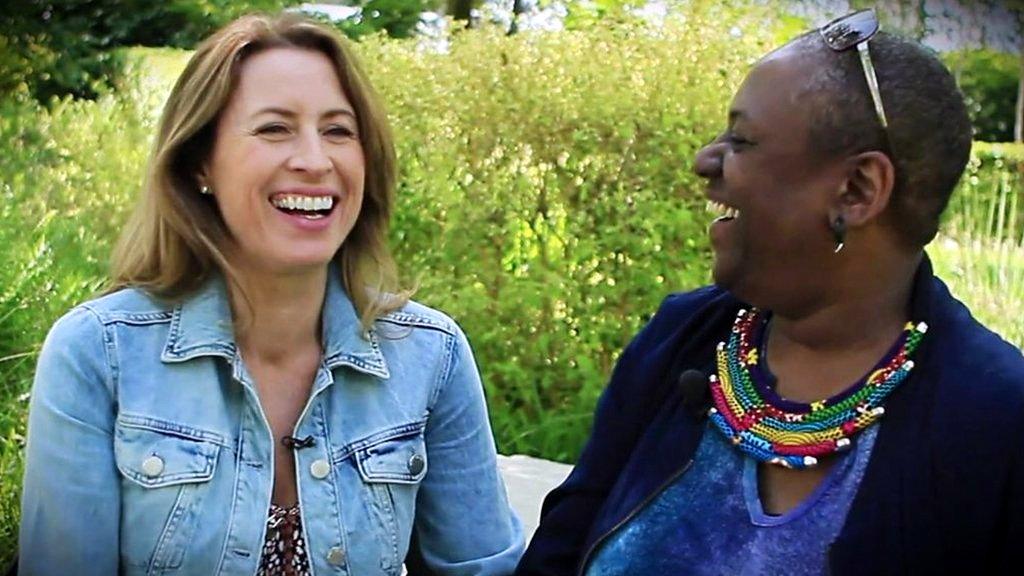Perimenopause: 'Little by little we're breaking down taboos'
- Published
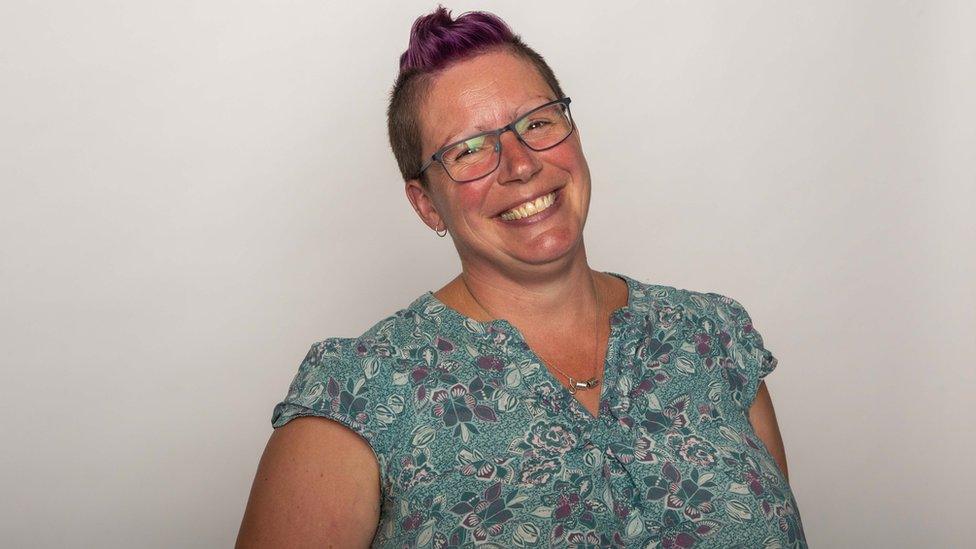
Emily Barclay set up Perimenopause Hub after it took her four years to find answers herself
A woman who set up a perimenopause support group after her own struggle to get a diagnosis said taboos around the issue are finally breaking down.
Emily Barclay set up Perimenopause Hub after it took her four years to get to the bottom of her irregular periods, crushing fatigue and mood swings.
The online platform had a social media membership of 1,200 last year, but it has now grown to more than 19,400.
Miss Barclay, from Earsham in Norfolk, said: "There clearly was a need."
Now 44, the personal trainer first started to get symptoms when she was 39.
She had been training for triathlons but inexplicably started to gain weight, and feel exhausted and "totally out of control".
After a lot of back-and-forth with her GP, inconclusive hormone tests and her own research, she was finally diagnosed with perimenopause - a phase that can last up to 10 years, external and cause hot flushes, night sweats and mood swings, which comes before the menopause.
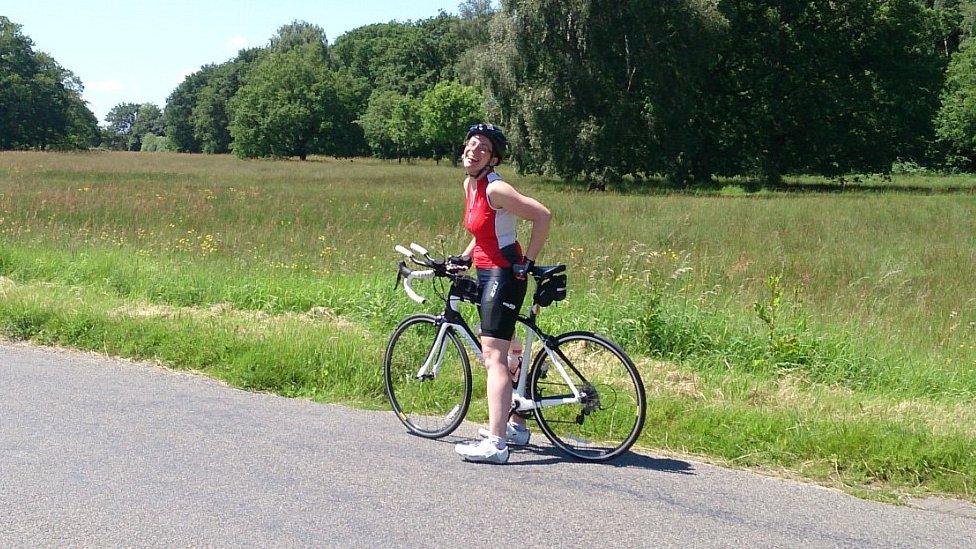
Miss Barclay had been training for triathlons when her symptoms started
Realising that so little was known and understood about perimenopause, she wanted to help others and the Perimenopause Hub, external was born - an online support service where women all over the world can find out more about symptoms and get support.
Miss Barclay said it was "crazy" how much the Facebook group had grown, with members from countries including the US, Canada, France, South Africa, Australia and the Philippines.

What is perimenopause?
The time from when a woman first starts to develop the physiological changes associated with menopause, to 12 months after her last period
The average age of menopause in the UK is 51 - perimenopause usually starts between two and eight years before this but can start even earlier, external
Symptoms can include hot flushes, night sweats, anxiety, low mood, poor concentration, low libido, headaches, a crawling-skin sensation and changes in menstrual cycle
For most women diagnosis should be based on symptoms. Hormone blood tests can be misleading as hormones fluctuate significantly during this time
The most effective treatment is hormone replacement therapy (HRT)
Other treatment includes cognitive behavioural therapy, acupuncture, antidepressants, and the anti-epileptic drug gabapentin
Herbal options include black cohosh, ginseng, evening primrose oil and sage
Source: Dr Susanna Unsworth from Cambridge Women's Health

Over the past year, Miss Barclay has also set up an online course, worked on writing a book based on her experience and launched a corporate menopause business, external to help raise awareness in the workplace.
"Women's health is being taken seriously and people want to talk about it," she said.
"Little by little we are breaking down the taboos about it."
She said she was "proud" to have created something that helped others, but that it also "breaks my heart that so many people need it".
"It saddens me that that many people are not finding the help they need," she added.

Fiona Weaver, 42, said the Perimenopause Hub Facebook group was a "wonderful community"
Fiona Weaver, who has been a member of the group for about a year, said joining was "one of the best things I've done in my life".
The 42-year-old from Preston, who now lives in Nuremberg, Germany, said she had not been "feeling myself" and when she came across the Perimenopause Hub thought "this is me".
"It's a wonderful community of women supporting each other," she said.

Find BBC News: East of England on Facebook, external, Instagram, external and Twitter, external. If you have a story suggestion email eastofenglandnews@bbc.co.uk
- Published13 March 2020
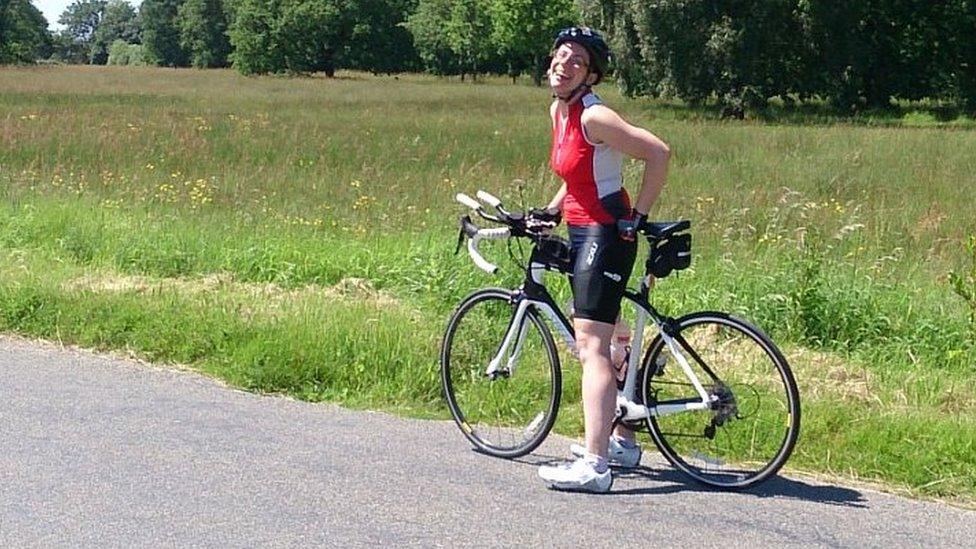
- Published28 January 2020

- Published7 November 2024
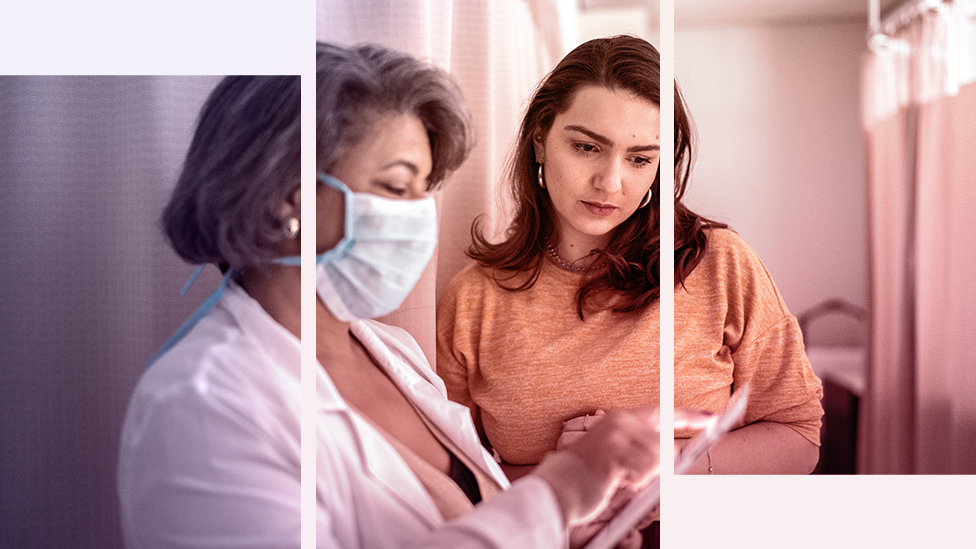
- Published16 May 2019
